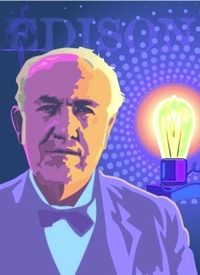
In response to the 2007 Energy Independence and Security Act, which bans the use of incandescent light bulbs by the year 2014, General Electric has shut down its last factory in the United States that makes the bulb. Thousands of jobs have been lost as a result of the closing of these factories since the act was signed. The close of the last remaining factory, located in Winchester, Virginia, will result in the loss of 200 more jobs — though job loss is just one of a variety of negative consequences of the ban.
In 2007, Congress passed an energy bill that institutes a complete ban on the sale of the incandescent light bulb by the year 2014. Signed into law by President George W. Bush, the 822-page bill, entitled the Energy Independence and Security Act, passed by a House vote of 314 to 100 after Senate approval. According to Democrat John Dingell of the House Energy and Commerce Committee, the bill will increase energy efficiency of nearly “every significant product and tool and appliance that we use, from light bulbs to light trucks.”
World Net Daily reported: “The phase-out of incandescent light is to begin with the 100-watt bulb in 2012 and end in 2014 with the 40-watt.”
The legislation favors the compact fluorescent (CFL) bulb, which is more expensive, but reportedly more efficient than the incandescent light bulb.
However, World Net Daily notes, “The presence of small amounts of highly toxic mercury in CFLs poses problems for consumers when breakage occurs and for disposal when bulbs eventually burn out. The potential environmental hazard created by the mass introduction of billions of CFLs with few disposal sites and a public unfamiliar with the risks is great.”
According to the Environmental Protection Agency, cleaning up a broken CFL bulb requires a series of complicated steps (http://www.epa.gov/cfl/cflcleanup.html) that vary depending on the surface on which the light bulb is broken. One of the EPA’s recommended procedures is that the room in which the light bulb is broken should be cleared of people for a minimum of 15 minutes.
Texas Republican Congressman Joe Barton has elected to fight to save the incandescent light bulb, asserting that they are cheaper, more environmentally correct, and because “the American consumer should be able to make the choice.” Barton adds that the move towards fluorescent light bulbs dramatically impacts the low-income consumer, who “can’t afford $4 or $5 for a light bulb.”
Barton remarks: “This [ban] is indicative of the overreach that the Obama administration, Mrs. Pelosi, and Majority Leader Reid, have put on the American people. They’re mandating our behavior in healthcare, they’re mandating, in this case, in energy. They don’t want the American people to have choice and they basically don’t trust the public. They want to tell the country what’s best for them to do.”
Barton contends that the federal government’s mandate against incandescent bulbs in favor the CFLs will likely result in an increase in mercury-poisoned emergency room patients.
“We are not opposed to CFL bulbs, but we want more personal freedom, more choice, [and for politicians to] let the markets work,” Barton explains.
In an effort to undo the mandates provided by the 2007 energy bill, Congressman Barton, along with Republican Michael Burgess of the Oversight and Investigations Subcommittee and Republican Marsha Blackburn, introduced a bill last week to repeal the light bulb ban. Entitled the Better Use of Light Bulbs (BULB) Act, the bill repeals Subtitle B of Title III of the Energy Independence and Security Act of 2007.
Barton defended the BULB Act by explaining: “The unanticipated consequences of the ’07 act — Washington-mandated layoffs in the middle of a desperate recession — is one of the many examples of what happens when politicians and activists think they know better than consumers and workers.”
Thomas Edison, developer of the first commercially practical incandescent light bulb, once said: "Genius is one percent inspiration, and 99 percent perspiration."
If he had been able to foresee the future, Edison might have added that the force destroying the creative genius that our formerly free enterprise system once inspired has been 99 percent legislation!




